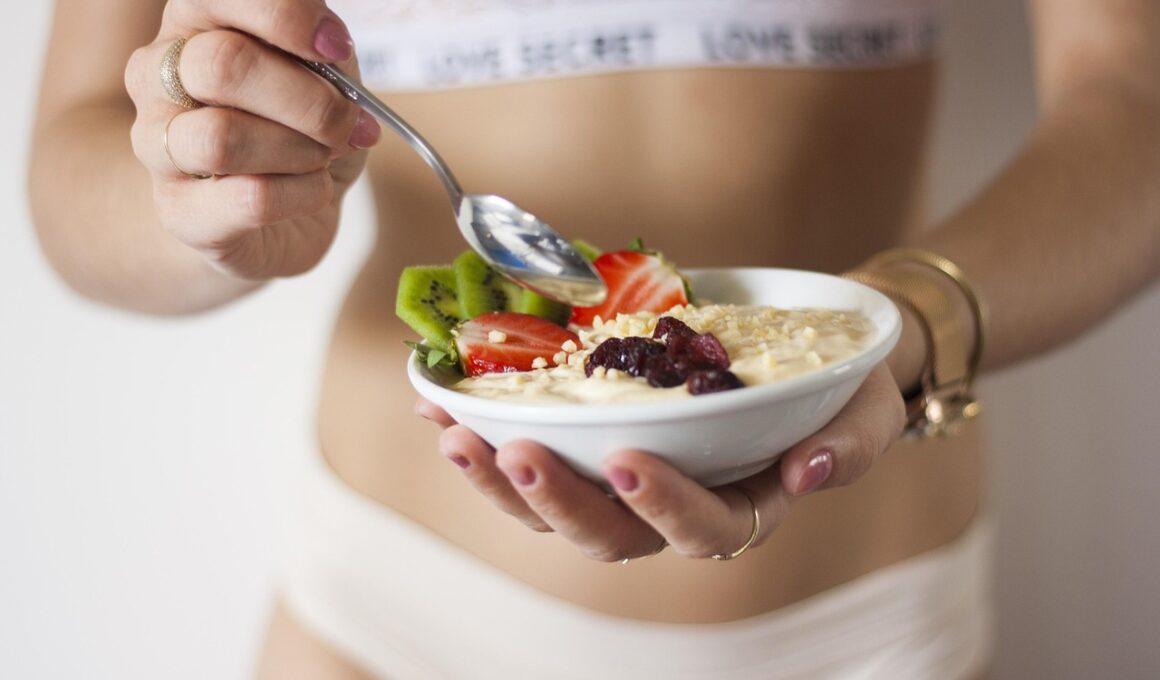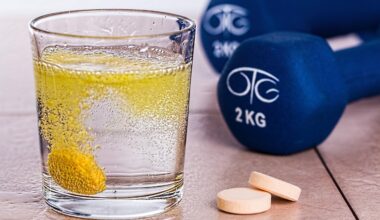How Post-Workout Meals Help Kids Recover and Grow Stronger
Post-workout nutrition plays a pivotal role in children and teenagers’ physical development. After engaging in sports or physical activities, young athletes require specific nutrients to aid recovery. Proper post-workout meals can help replenish glycogen stores, repair muscle tissue, and support immune function. Nutrients like carbohydrates, proteins, and healthy fats are essential to fulfill these needs. Without adequate nutrition, young athletes may feel fatigued, which can hinder their performance and increase their risk of injury. Parents and coaches must emphasize the importance of consuming the right foods after exercise, ensuring that children understand the significance of each meal. A well-balanced post-workout meal is vital for their energy levels, performance, and overall health. These meals should ideally be consumed within 30 minutes after working out to maximize recovery. Learning to choose healthy options will empower kids to make better dietary choices as they grow. Education on nutrition’s impact can create lasting habits benefiting young athletes both on and off the field. Ultimately, a proper post-workout meal facilitates optimal growth and development during this crucial stage of life.
The importance of carbohydrates for recovery cannot be overstated. As young athletes engage in strenuous physical activity, they deplete their glycogen stores, which serve as the primary energy source. Therefore, including carbohydrates in post-workout meals is essential for restoring energy levels. Foods such as whole grains, fruits, and vegetables provide necessary carbohydrates to rejuvenate glycogen reserves efficiently. Additionally, replenishing glycogen levels can help enhance performance in subsequent workouts or competitions. It’s not only about restoring energy; carbohydrates also stimulate the release of insulin, a hormone that aids in muscle recovery. Pairing carbohydrates with protein after exercise can further improve recovery, as this combination supports muscle repair and growth. Options like a turkey sandwich on whole-grain bread or a fruit smoothie with yogurt can make for effective recovery meals. Moreover, teaching kids to enjoy these foods can encourage healthier eating habits overall. Along with quick snacks, parents should focus on preparing balanced meals to ensure kids receive the needed nutrients. Adequate carbohydrate intake supports their general health and athletic performance, paving the way for stronger and healthier young athletes.
The Role of Protein in Muscle Repair
Protein is another essential macronutrient that plays a critical role in post-workout recovery. It is crucial for repairing and building muscle tissue that may be broken down during physical activity. For children and teenagers, who are still growing, adequate protein intake is vital for proper development. Common protein sources include lean meats, fish, eggs, dairy products, legumes, and nuts, which can help meet dietary needs efficiently. After exercise, consuming protein helps stimulate muscle protein synthesis, contributing to muscle growth and recovery. It is recommended that young athletes aim for a protein intake of approximately 20-25 grams in their post-workout meals for optimal benefits. Including a variety of protein sources will ensure a range of amino acids, vital for muscle repair. Simple options, such as a hard-boiled egg or a cup of yogurt, can provide the necessary protein without extensive preparation. Parents can guide children toward incorporating these foods into their post-workout snacks and meals. By developing a protein-rich post-workout routine, kids will feel stronger and recover more quickly, ultimately enhancing their athletic performance while building resilience.
In addition to carbohydrates and proteins, healthy fats should not be overlooked in post-workout nutrition. Healthy fats provide a concentrated source of energy and support various bodily functions, including hormone production and nutrient absorption. Incorporating sources of healthy fats like avocados, nuts, seeds, and olive oil can enhance the nutritional profile of post-workout meals. These fats are particularly important for children and teens, as they assist in brain development and overall growth. Moreover, fat helps create a sense of satiety, preventing kids from feeling excessively hungry, which can lead to poor food choices later on. However, it’s essential to maintain balance and moderation when including fats in their diets. Combining healthy fats with carbohydrates and proteins can lead to a well-rounded meal that provides sustained energy levels. For instance, a quinoa salad topped with avocado and grilled chicken will offer a complete spectrum of nutrients to support recovery. Establishing a habit of including healthy fats in post-workout meals can foster lifelong healthy eating habits in young athletes. This will ultimately benefit their physical performance and overall health significantly.
Hydration: The Overlooked Component
Hydration is an equally vital aspect of post-workout nutrition that can significantly impact recovery and performance. During exercise, kids lose fluids and electrolytes through sweat, which must be replenished afterward. Typically, water should be the primary beverage of choice, yet incorporating electrolyte-rich drinks can also be beneficial, especially after intense physical activities or prolonged exertion. Educating children about recognizing thirst signals is fundamental, as it encourages them to prioritize hydration. Offering an array of beverage options, including water, coconut water, or naturally flavored waters, can keep them engaged in maintaining good hydration habits. Inadequate hydration can lead to fatigue, decreased performance, and even health problems like heat exhaustion. To prevent these issues, parents should develop hydration practices for kids. Before and after workouts, ensure they drink sufficient fluids to support their recovery. In schools or during sports, remind them to consume water regularly. Furthermore, incorporating fruits and vegetables with high water content, such as watermelon and cucumbers, into their meals can enhance overall hydration as well. This holistic approach will help foster better performance and quicker recovery for young athletes.
Creating a post-workout nutrition plan tailored for kids and teens is essential for maximizing their potential. Parents and coaches can collaborate to develop meal and snack options that are not only nutritious but also appealing to young athletes. A well-structured plan may include a variety of foods packed with carbohydrates, proteins, healthy fats, and hydration solutions. For instance, introducing fun recipes, such as protein-packed smoothies, energy bars, or whole-grain wraps, can encourage kids to embrace healthy eating habits. Engaging kids in the planning and cooking process fosters a connection to the food and its benefits. Additionally, establishing a routine around post-workout meals can help normalize the practice, making it an essential part of their athletic experience. By involving them in production and selection, kids may thrive on their nutritional journey, instilling lifelong habits that support their overall growth. Furthermore, being attentive to their dietary preferences and allergies also contributes to creating a successful plan. Building a solid nutritional foundation ensures youth athletes stay energized and healthy, helping them perform better in their sports while thriving in their daily activities.
The Importance of Timing
When it comes to post-workout nutrition for kids and teens, timing plays a crucial role. Consuming the right nutrients within the first 30 minutes to two hours after exercise significantly impacts recovery. This period is known as the
indow of opportunity,


